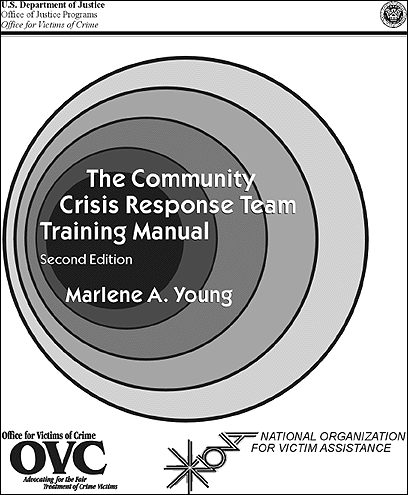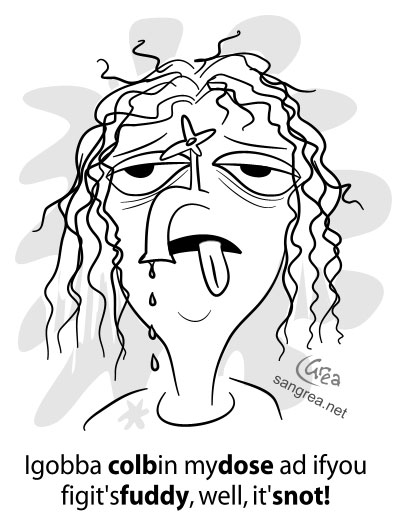|
Other articles:
|
 DoseResponse is a flexible, secure, and user-friendly software product for outpatient anticoagulation clinics that: Automates the capture of patient .
DoseResponse is a flexible, secure, and user-friendly software product for outpatient anticoagulation clinics that: Automates the capture of patient .
 Mar 30, 2011 . In a Harvard School of Public Health webcast, researchers used a recent federal report to start a conversation on vitamin D. How much is .
Five thousand data sets were simulated and fit to the two alternative expressions of the dose-response equation. The distribution of the EC50 and log( EC50) .
File Format: Microsoft Powerpoint - Quick View
File Format: PDF/Adobe Acrobat - Quick View
To use these techniques to develop computational tools for understanding and predicting nonlinear dose response behaviors for drug and environmental agent .
File Format: PDF/Adobe Acrobat - Quick View
Mar 30, 2011 . In a Harvard School of Public Health webcast, researchers used a recent federal report to start a conversation on vitamin D. How much is .
Five thousand data sets were simulated and fit to the two alternative expressions of the dose-response equation. The distribution of the EC50 and log( EC50) .
File Format: Microsoft Powerpoint - Quick View
File Format: PDF/Adobe Acrobat - Quick View
To use these techniques to develop computational tools for understanding and predicting nonlinear dose response behaviors for drug and environmental agent .
File Format: PDF/Adobe Acrobat - Quick View
 File Format: PDF/Adobe Acrobat - Quick View
File Format: PDF/Adobe Acrobat - Quick View
 Apr 15, 2011 . In the QMRA framework, the dose response assessment phase is the quantitative yardstick for the risk estimate, as this phase estimates a .
It is expected that there may be markedly different dose-response relationships for different effects of dioxin, depending on the respective roles of .
Apr 15, 2011 . In the QMRA framework, the dose response assessment phase is the quantitative yardstick for the risk estimate, as this phase estimates a .
It is expected that there may be markedly different dose-response relationships for different effects of dioxin, depending on the respective roles of .

 When the measured response is binary, the logistic or probit regression can be used to generate a dose response curve. See our Data Analysis Example pages .
Your browser version may not work well with NCBI's web applications. More information here. The archive for this journal includes: Dose Response: Vols. .
nutrition.ucdavis.edu › Clinical - SimilarBeyond Science and Decisions - Alliance for Risk AssessmentBeyond Science and Decisions: From Issue Identification to Dose-Response Assessment. Workshop Series General Information. Background & Purpose .
Objective: Establish the dose-response relationship between increasing sleep . Keywords: Recovery sleep, sleep dose response, chronic sleep restriction, .
File Format: PDF/Adobe Acrobat - Quick View
When the measured response is binary, the logistic or probit regression can be used to generate a dose response curve. See our Data Analysis Example pages .
Your browser version may not work well with NCBI's web applications. More information here. The archive for this journal includes: Dose Response: Vols. .
nutrition.ucdavis.edu › Clinical - SimilarBeyond Science and Decisions - Alliance for Risk AssessmentBeyond Science and Decisions: From Issue Identification to Dose-Response Assessment. Workshop Series General Information. Background & Purpose .
Objective: Establish the dose-response relationship between increasing sleep . Keywords: Recovery sleep, sleep dose response, chronic sleep restriction, .
File Format: PDF/Adobe Acrobat - Quick View
 Dose-response curves can be used to plot the results of many kinds of experiments. . However, the term "dose-response curve" is also used more loosely to .
Nonlinearity in Biology, Toxicology and Medicine is a quarterly peer-reviewed electronic journal devoted to publication of original findings on the .
by AV Brenner - 2011 - Cited by 3 - Related articles
by M Imaizumi - 2006 - Cited by 43 - Related articles
of, relating to, or graphing the pattern of physiological response to varied dosage (as of a drug or radiation) in which there is typically little or no .
Use Origin's nonlinear curve fitter to curve fit your dose reponse data.
File Format: PDF/Adobe Acrobat - Quick View
The Dose Response Module allows for the calculation of dose response type data from LabChart recordings, automatically or manually, offline or online.
Your browser may not have a PDF reader available. Google recommends visiting our text version of this document.
The dose-response relationship, or exposure-response relationship, describes the change in effect on an organism caused by differing levels of exposure (or .
Dose-response curves can be used to plot the results of many kinds of experiments. . However, the term "dose-response curve" is also used more loosely to .
Nonlinearity in Biology, Toxicology and Medicine is a quarterly peer-reviewed electronic journal devoted to publication of original findings on the .
by AV Brenner - 2011 - Cited by 3 - Related articles
by M Imaizumi - 2006 - Cited by 43 - Related articles
of, relating to, or graphing the pattern of physiological response to varied dosage (as of a drug or radiation) in which there is typically little or no .
Use Origin's nonlinear curve fitter to curve fit your dose reponse data.
File Format: PDF/Adobe Acrobat - Quick View
The Dose Response Module allows for the calculation of dose response type data from LabChart recordings, automatically or manually, offline or online.
Your browser may not have a PDF reader available. Google recommends visiting our text version of this document.
The dose-response relationship, or exposure-response relationship, describes the change in effect on an organism caused by differing levels of exposure (or .
 . low dose stimulation/high dose inhibition of bacteria by toxic agents. .
Dose-response assessment is the process of characterizing the relation between the dose of an agent administered or received, and the incidence of an .
The relationship between the amount of exposure [dose] to a substance and the resulting changes in body function or health (response). .
"The dose makes the poison," commonly attributed to Paracelsus1, is a cornerstone of our understanding of how our bodies respond to chemical, biological, .
Apr 1, 2005 . Misconceptions about pain treatment could put a doctor in prison for life.
. low dose stimulation/high dose inhibition of bacteria by toxic agents. .
Dose-response assessment is the process of characterizing the relation between the dose of an agent administered or received, and the incidence of an .
The relationship between the amount of exposure [dose] to a substance and the resulting changes in body function or health (response). .
"The dose makes the poison," commonly attributed to Paracelsus1, is a cornerstone of our understanding of how our bodies respond to chemical, biological, .
Apr 1, 2005 . Misconceptions about pain treatment could put a doctor in prison for life.
 Provides information on the Society, its membership, the newsletter, the online journal and the annual conference.
Yoga's dose-response effect. . Yoga's dose-response effect. May 30th, 2011. Goto comments Leave a comment. This week's Jockology column in the Globe and .
The dose-response function (DRF) relates the quantity of a pollutant that affects a receptor (e.g. population) to the physical impact on this receptor ( e.g. .
Provides information on the Society, its membership, the newsletter, the online journal and the annual conference.
Yoga's dose-response effect. . Yoga's dose-response effect. May 30th, 2011. Goto comments Leave a comment. This week's Jockology column in the Globe and .
The dose-response function (DRF) relates the quantity of a pollutant that affects a receptor (e.g. population) to the physical impact on this receptor ( e.g. .


 What is Dose-Response Assessment Boot Camp? It is a new initiative providing intensive, in-depth hands-on training in hazard characterization and .
At the heart of today's approach to chemical regulation is an assumption about the relationship between dose and response. Higher doses are supposed to .
What is Dose-Response Assessment Boot Camp? It is a new initiative providing intensive, in-depth hands-on training in hazard characterization and .
At the heart of today's approach to chemical regulation is an assumption about the relationship between dose and response. Higher doses are supposed to .

 DOSE-RESPONSE MODELING. In general terms dose-response models describe how the probability or frequency of a specified response changes with the dose level. .
Dose Response Relationship & Therapeutic Index Dr Rizwan.
DOSE-RESPONSE MODELING. In general terms dose-response models describe how the probability or frequency of a specified response changes with the dose level. .
Dose Response Relationship & Therapeutic Index Dr Rizwan.
 by B Meibohm - 2003
by Y Inoue - 2010 - Related articles
Dose-Response Assessment. In order to determine the potential risk we face when exposed to toxicants the risk assessor must clarify the relationship between .
by AL Dunn - 2005 - Cited by 383 - Related articles
A dose-response model describes the probability of a specified response from exposure to a specified pathogen in a specified population, as a function of .
File Format: PDF/Adobe Acrobat - Quick View
One particular instance in which this dose-response relationship does not hold true, is in regard to true allergic reactions. Allergic reactions are special .
by RR Ji - 2009 - Cited by 4 - Related articles
A dose-response relationship describes how the likelihood and severity of adverse health effects (the responses) are related to the amount and condition of .
Dose-response plots (see dose-response applet) (eq. 1) are useful for evaluating the relative ability of agonists, both partial and full, .
File Format: Microsoft Powerpoint - Quick View
A dose-response assessment shows the relationship between the dose of a chemical and the anticipated incidence of an adverse health or environmental effect .
by B Meibohm - 2003
by Y Inoue - 2010 - Related articles
Dose-Response Assessment. In order to determine the potential risk we face when exposed to toxicants the risk assessor must clarify the relationship between .
by AL Dunn - 2005 - Cited by 383 - Related articles
A dose-response model describes the probability of a specified response from exposure to a specified pathogen in a specified population, as a function of .
File Format: PDF/Adobe Acrobat - Quick View
One particular instance in which this dose-response relationship does not hold true, is in regard to true allergic reactions. Allergic reactions are special .
by RR Ji - 2009 - Cited by 4 - Related articles
A dose-response relationship describes how the likelihood and severity of adverse health effects (the responses) are related to the amount and condition of .
Dose-response plots (see dose-response applet) (eq. 1) are useful for evaluating the relative ability of agonists, both partial and full, .
File Format: Microsoft Powerpoint - Quick View
A dose-response assessment shows the relationship between the dose of a chemical and the anticipated incidence of an adverse health or environmental effect .
 Sitemap
Sitemap
|































